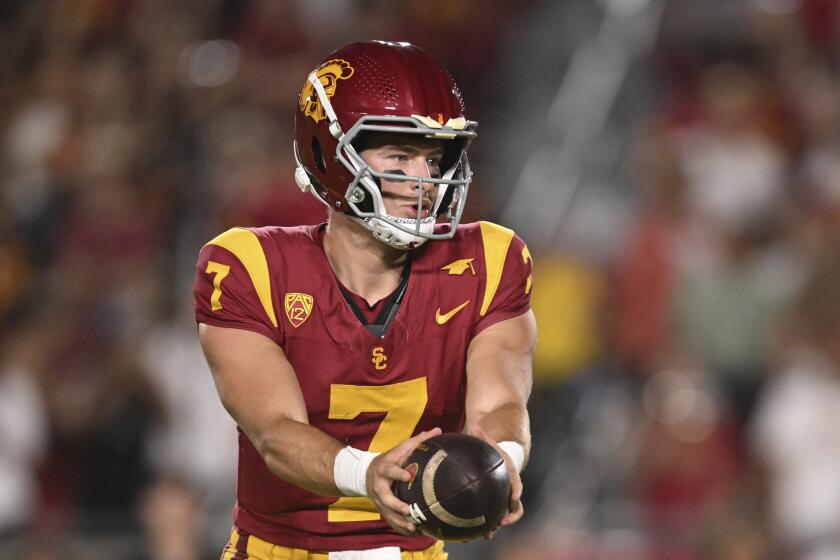Wheeler’s Mother Has Court Challenge
A recently appointed minors guardian in the Rashidi Wheeler wrongful-death suit against Northwestern University is suggesting a Chicago judge replace the former football player’s mother as a co-administrator of his estate, a move the guardian contends would allow the case to be settled for an estimated $16 million.
In a six-page report to Cook County (Ill.) Judge Kathy Flanagan, minors guardian George B. Collins criticized the insistence of Wheeler’s mother, Linda Will, to demand “nonfinancial vindication” from Northwestern, including the firing of football Coach Randy Walker, a public apology from university officials and the establishment of a permanent memorial for Wheeler.
Wheeler, a 22-year-old senior strong safety, died Aug. 3, 2001, after collapsing while running a grueling drill of wind sprints on a Northwestern practice field. The Cook County coroner declared Wheeler’s cause of death to be exercise-induced bronchial asthma, and his family sued the university, citing poor medical attention and other neglect, including Walker’s use of a drill banned by the NCAA during the voluntary summer practice period.
The university claimed Wheeler, a La Verne Damien High graduate, may have triggered his own death by ingesting ephedra-containing products before the workout.
Will has staunchly pushed for her “day in court.” She recently fired her Chicago-based attorney, James Montgomery, for trying to convince her to accept a multimillion-dollar settlement from Northwestern, and for allowing the appointment of the minors guardian to file a report on the interests of the three minor plaintiffs in the Wheeler estate: Wheeler’s three half brothers.
“A settlement is a business transaction, that’s all,” Will said Tuesday from her Ontario home. “I will not, in Rashidi’s name, allow his death to be discounted to a business transaction.”
Yet, Collins argued in his report that Will has “in her own mistaken misconstruction of her interest, blocked the settlement. Her grief over the loss of her son is such that she cannot agree to any settlement without nonfinancial terms that represent vindication of the life of the deceased rather than recovery.
“Money for the minors is more important than any form of vindication and that is a waste and mismanagement of the estate of the deceased.”
Tom Demetrio, the attorney for Wheeler’s father and Will’s ex-husband, George Wheeler, said he and Montgomery spent months crafting a settlement with Northwestern attorney Eric Quandt, factoring the economic damages of Wheeler’s death along with the “noneconomic damages, including loss to society, and loss of love, affection, companionship and guidance ... both sides have done an analysis to assess the cost.”
Demetrio said he pushed for the minors guardian’s appointment to settle the estate’s internal friction generated by Will’s push for a trial and George Wheeler’s openness to a settlement.
“The things [Will] wants, a jury cannot dictate; it’s just not going to happen,” Demetrio said. “In 99.9% of settlements in the U.S., there’s a release signed by plaintiffs in which it states the defendant is not admitting liability. Northwestern is not of the mind-set that it will publicly admit liability.”
Collins and attorneys close to the case said a Cook County probate judge could take away Will’s status as a co-administrator of the estate, and that Flanagan could then approve a settlement and distribute portions of the $16-million award among all members of the estate, including Will.
“[The attorneys] have told me I’d get the lion’s share [of the money], but why deprive me of an inherent right?” Will said. “Asking for my day in court is not asking for something unjust or illegal.”
A status hearing in the case is scheduled for Monday in Chicago.
More to Read
Get our high school sports newsletter
Prep Rally is devoted to the SoCal high school sports experience, bringing you scores, stories and a behind-the-scenes look at what makes prep sports so popular.
You may occasionally receive promotional content from the Los Angeles Times.







